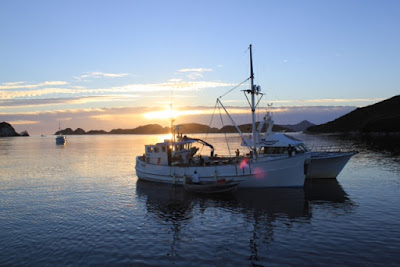Persistence pays off
Sunday 26th February 2017
What: Team Clean return to Hobart with 66,000+ pieces of rubbish
When: Midday today. The rubbish will be unloaded tomorrow morning
Where: Kings Pier, Hobart
Tasmania’s most extreme beach cleaners will steam into Hobart today, along with 66,000+ pieces of marine debris from Tasmania’s remote South West Wilderness World Heritage Area.
Sunday 26th February 2017
What: Team Clean return to Hobart with 66,000+ pieces of rubbish
When: Midday today. The rubbish will be unloaded tomorrow morning
Where: Kings Pier, Hobart
Tasmania’s most extreme beach cleaners will steam into Hobart today, along with 66,000+ pieces of marine debris from Tasmania’s remote South West Wilderness World Heritage Area.
“Marine debris is a massive global issue that has serious impacts on our wildest and most spectacular World Heritage beaches” said clean up coordinator Matt Dell.
“Despite wild weather, heavy seas and challenging beach landings, we’ve successfully cleaned up some of the most heavily polluted beaches in South West Tasmania and we’re finally seeing the years of hard work paying off. The amount of rubbish present and collected was significantly less than on previous visits.
28 volunteers travelled to the World Heritage Area on four local fishing boats, including 13 year old Scotch Oakburn student Theo Wolfhagen, who joined the expedition as part of the exciting new interactive Coast Watchers education program.
“Small plastic debris is a big problem that my generation should not have to clean up” said Theo.
Coast Watchers aims to help schools investigate the pressing issue of marine debris, through an interactive online blog, lesson plans that are mapped to both primary and secondary school curriculums and resources for schools to conduct beach clean ups in their local area.
The expedition also collected important data on coastal change and sent out a daily blog via satellite phone that has reached hundreds of primary and high school students across the country, with 20 schools signing up to join the Coast Watchers program.
“Despite wild weather, heavy seas and challenging beach landings, we’ve successfully cleaned up some of the most heavily polluted beaches in South West Tasmania and we’re finally seeing the years of hard work paying off. The amount of rubbish present and collected was significantly less than on previous visits.
28 volunteers travelled to the World Heritage Area on four local fishing boats, including 13 year old Scotch Oakburn student Theo Wolfhagen, who joined the expedition as part of the exciting new interactive Coast Watchers education program.
“Small plastic debris is a big problem that my generation should not have to clean up” said Theo.
Coast Watchers aims to help schools investigate the pressing issue of marine debris, through an interactive online blog, lesson plans that are mapped to both primary and secondary school curriculums and resources for schools to conduct beach clean ups in their local area.
The expedition also collected important data on coastal change and sent out a daily blog via satellite phone that has reached hundreds of primary and high school students across the country, with 20 schools signing up to join the Coast Watchers program.






















